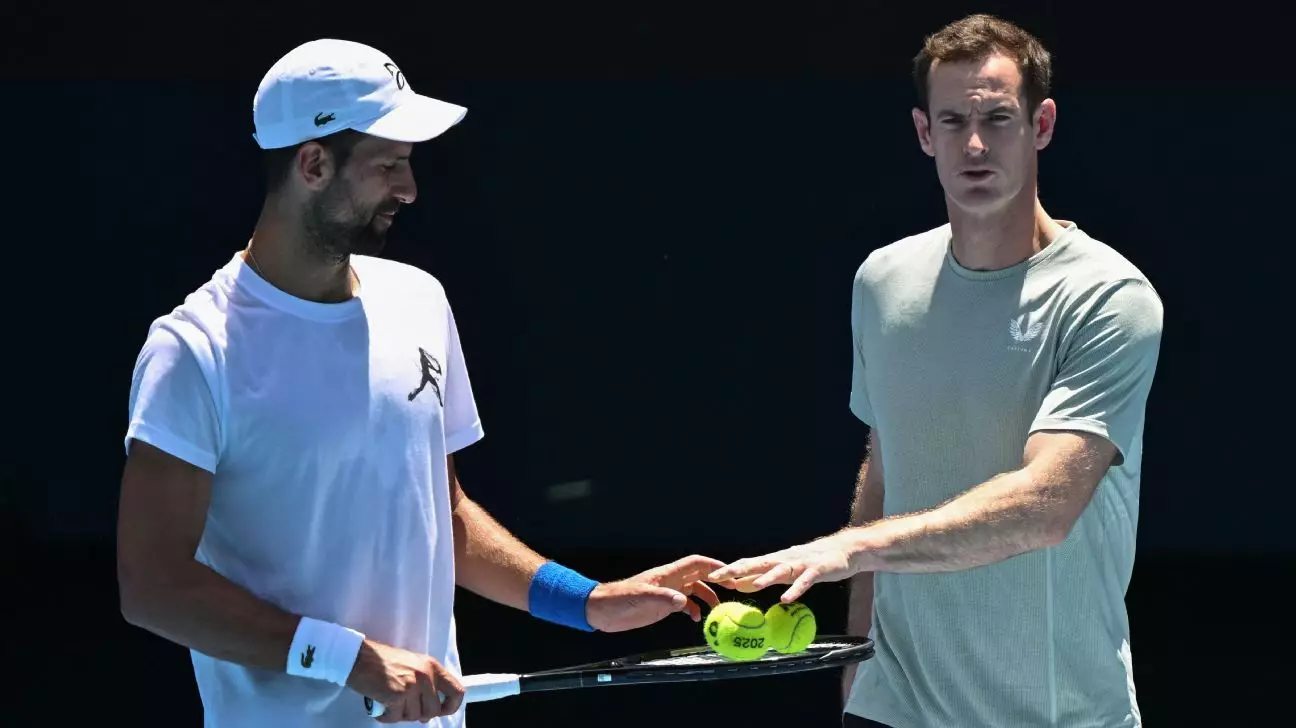The world of professional tennis can be both exhilarating and tumultuous, where partnerships form and dissolve in the blink of an eye. Recent headlines have captured the sudden end of the coaching collaboration between Andy Murray and Novak Djokovic, a partnership that, while brief, had high expectations given the rich backgrounds of both players. Their alliance was born in turbulent times, as Djokovic was battling a slump in form, seeking guidance from a former rival who has deeply understood both the pressures and triumphs of the sport. However, as the saying goes, not all great teams are meant to last, and this chapter has come to a close after just six months.
The Weight of Expectations
Djokovic, a titan of the sport, was long seen as a perennial contender to add yet another Grand Slam title to his collection. As he approaches the landmark eighth Wimbledon title, the anxiety associated with such lofty objectives can sometimes cloud judgment and performance. The early phase of his partnership with Murray was filled with promise, yet results did not align with ambitions. Despite reaching the semifinals of the Australian Open, injuries stifled his momentum, leading to disappointing finishes—including a recent loss in the Miami Open final, where he sought to secure an elusive 100th tour-level title. The pressures of expectation weigh heavily on champions, and the bond forged in coaching must endure the trials of performance.
Mutual Respect Amidst Transition
The mutual respect displayed in the statements made by Djokovic and Murray gives us a glimpse into the professional ethics prevalent in the sport. Djokovic’s gratitude towards Murray highlights an acknowledgment of dedication, as both players carry the scars of competition that run deep beyond mere statistics. Murray’s commendation of Djokovic’s incredible opportunity illustrates the learning experiences present even when outcomes are less favorable. Their amicable separation emphasizes an understanding that personal growth sometimes necessitates uncomfortable changes—an essential truth in a career often dictated by moments of triumph and adversity.
Strategies for Regaining Form
Thus, we reach a pivotal inquiry: what strategies should Djokovic embrace moving forward? The decision to accept a wildcard entry into the Geneva Open is indicative of his desire to recalibrate and rebuild confidence before the challenging clay season. Renowned for his exceptional tennis IQ and resilience, Djokovic’s next steps should involve a genuine reassessment of both cooking from within and strategic approaches on court. Continuous reflection and a focus on physical and mental wellness can play significant roles as he tackles upcoming events, especially the second Grand Slam of the year in Paris.
Lessons from a Short-Lived Partnership
Competitiveness and urgency define not only the gameplay but also the dynamics between coaches and athletes. While Murray and Djokovic’s coaching partnership may have ended sooner than hoped, it serves as a reminder that every experience, no matter how brief, carries intrinsic value. The resilience encapsulated in their journey elucidates a profound truth: in the relentless pursuit of greatness, it’s not just the victories that matter but the paths traveled, lessons learned, and relationships formed along the way.


Leave a Reply